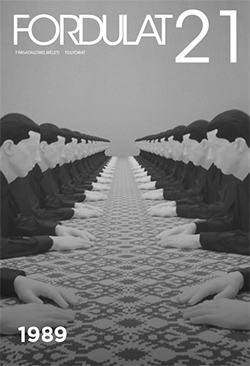Kelet-Európa mint a közgazdaságtani tudás laboratóriuma: A neoliberalizmus transznacionális gyökerei
Eastern Europe as a Laboratory for Economic Knowledge: The Transnational Roots of Neoliberalism
Author(s): Gil Eyal, Johanna BockmanSubject(s): Politics / Political Sciences, Social Sciences, Economy
Published by: Fordulat
Keywords: economic knowledge;neoliberalism;actor-network theory (ANT);
Summary/Abstract: Using Latour’s concepts of „actor-network” and „translation”, the authors show that neoliberalism’s success in Eastern Europe is best analyzed not as an institutional form diffused along the nodes of a network, but as itself an actor-network based on a particular translation strategy that construes socialism as a laboratory of economic knowledge. They argue that socialism was made into a laboratory of economic knowledge during the socialist calculation debate of the 1920s and 1930s. An extensive debate during the Cold War is also documented and shows that a transnational network continued to be organized around attempts to connect the results obtained in the socialist laboratory with debates and struggles in Western economics. Finally, the drafting of transition blueprints in post-communist Eastern Europe after 1989, with the participation of American economists, is shown to be the continuation of this transnational network.
Journal: Fordulat (2008-tól Új Folyam)
- Issue Year: 2014
- Issue No: 21
- Page Range: 102-149
- Page Count: 48
- Language: Hungarian

